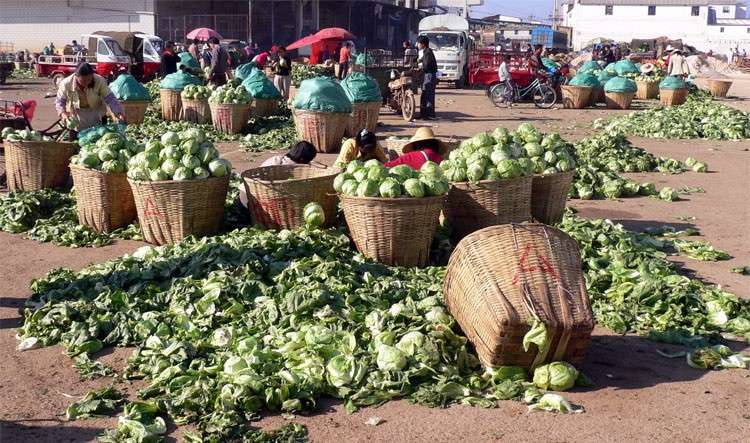The Director-General at the Council For Scientific and Industrial Research (CSIR), Prof. Paul Bosu, has revealed that Ghana’s failed agriculture system is as a result of poor transportation network and storage facilities.
Speaking in an interview on ways to check the rising rate of food inflation, Prof. Paul Bosu, said, despite the improvement in the number of storage facilities, the government needs to now look into the adequate transportation of food items from the hinterlands to the storage facilities across the country.
This he said will ensure that food stored during peak seasons are made available in lean seasons to keep prices stable across the country.
“We are still struggling with post-harvest losses. We can attribute the issue to our transportation systems and storage systems; the latter has seen massive improvements thanks to Government. So the storage facilities are ok, but now we need to commit resources to go into areas where farmers struggle to transport their harvested produce to bring such produce to the storage facilities. This will help stabilize prices as food will be available all year-round.”
Prof. Bosu

Improve storage and transportation network to boost production
As food inflation in the country continues to rise, further pushing national inflation to unprecedented levels, Government should invest in a comprehensive storage strategy to deal with post-harvest losses in the country, Prof. Bosu noted.
“This will eventually make food available all year round, keeping prices and food inflation under control.”
Prof. Bosu
The national inflation rate stands at 23.6% for April. According to data from the Ghana Statistical Service, it is essential to note that food inflation accounts for 50 percent of that national rate.
All the 15 food subclasses recorded positive year-on-year inflation with Oils and Fats, recording the highest of 43.4 percent. Other sub-classes like Water, Cereal products, and Fruits and Vegetables recorded inflation rates of 42.1 percent 31.5 percent, and 30.1 respectively. The sub-class to record the least rate of food inflation of 18.5 percent from April 2021 to April 2022 was Coffee and Coffee Substitutes.
Agricultural roads have the potential to fight poverty
Despite the critical importance of roads, some political administrations care less about roads, particularly those in rural areas.
However, in July 2021, the Ghana High Way Authority disclosed its plan to design interventions for rural road development.
According to the Authority, the program design would ensure that Ghana’s key agricultural areas will feature better transportation connections than at present.
The programme included maintenance, surfacing, and overall improvements to existing unsurfaced roads. Once the programme is complete, 4,465km of road will be improved. This will include 28 trunk roads and 258 link roads. According to some agri-experts, roads have the potential to fight poverty because, if for nothing at all, it helps people to travel elsewhere to offer services or market farm produce, especially in the case of rural dwellers.
Roads open up places and improve the socio-economic lives of the people, said the agri-experts, adding that the Government should see the implementation of this ‘road programme’ to the letter.
READ ALSO: Bulgarian Embassy Demolition: Ablakwa’s Statement is Unfortunate and Irresponsible- Jinapor




















